Watch: Old video of UK PM aspirant Rishi Sunak saying he has no ‘working-class’ friends resurfaces
‘I have friends who are aristocrats, I have friends who are upper-class, I have friends who are working-class... Well, not working-class.’
It’s possible that I shall make an ass of myself. But in that case one can always get out of it with a little dialectic. I have, of course, so worded my proposition as to be right either way (K.Marx, Letter to F.Engels on the Indian Mutiny)
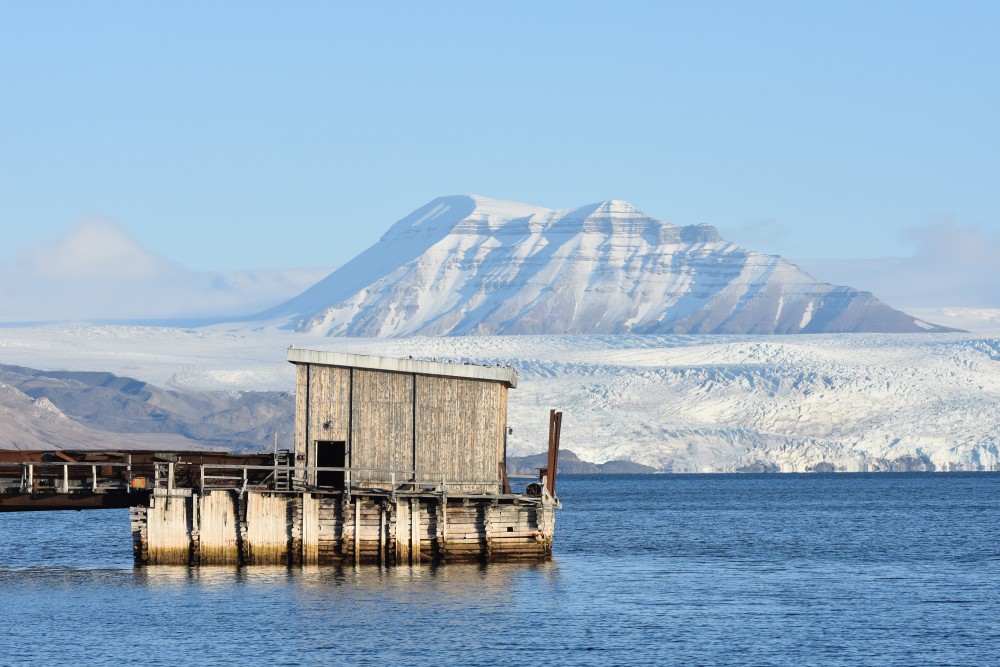
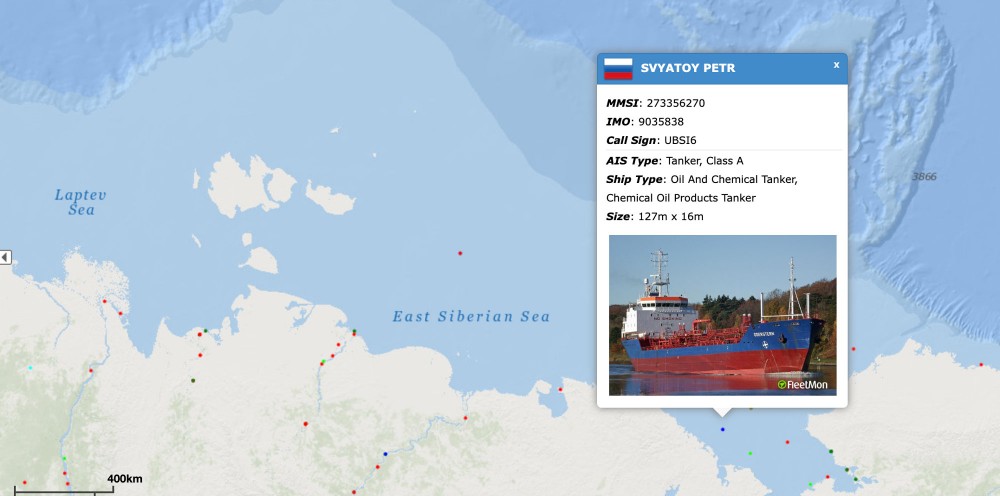
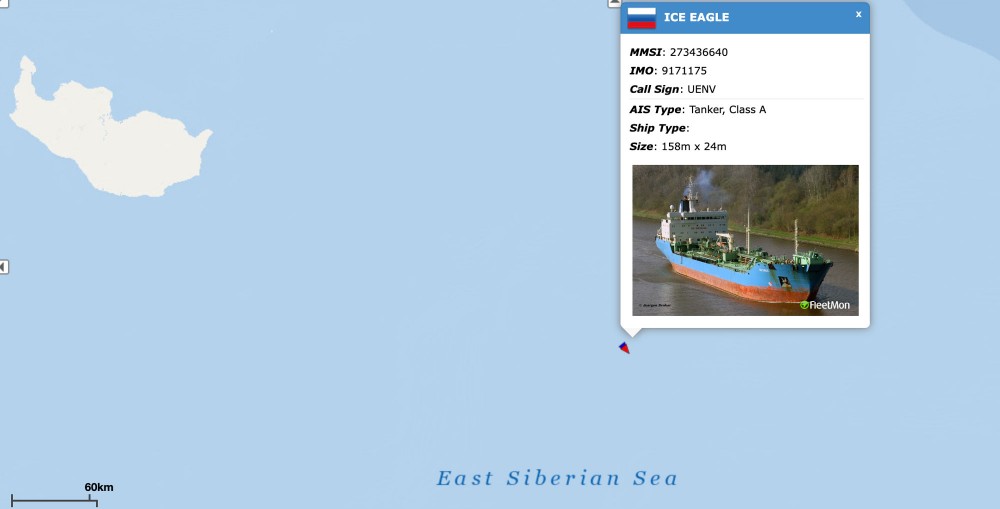
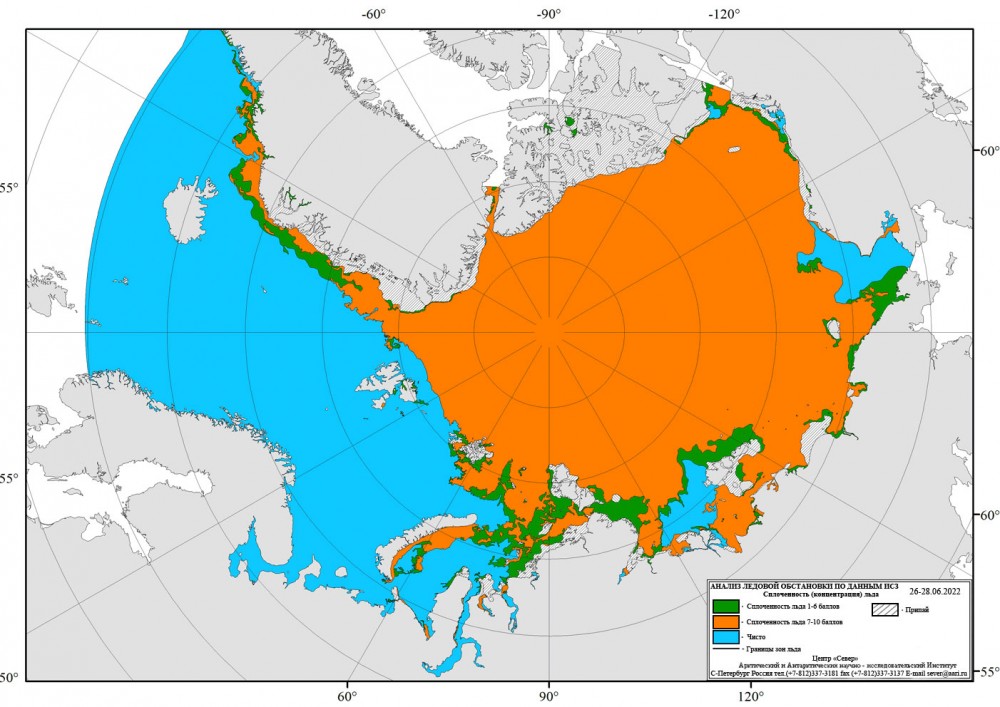
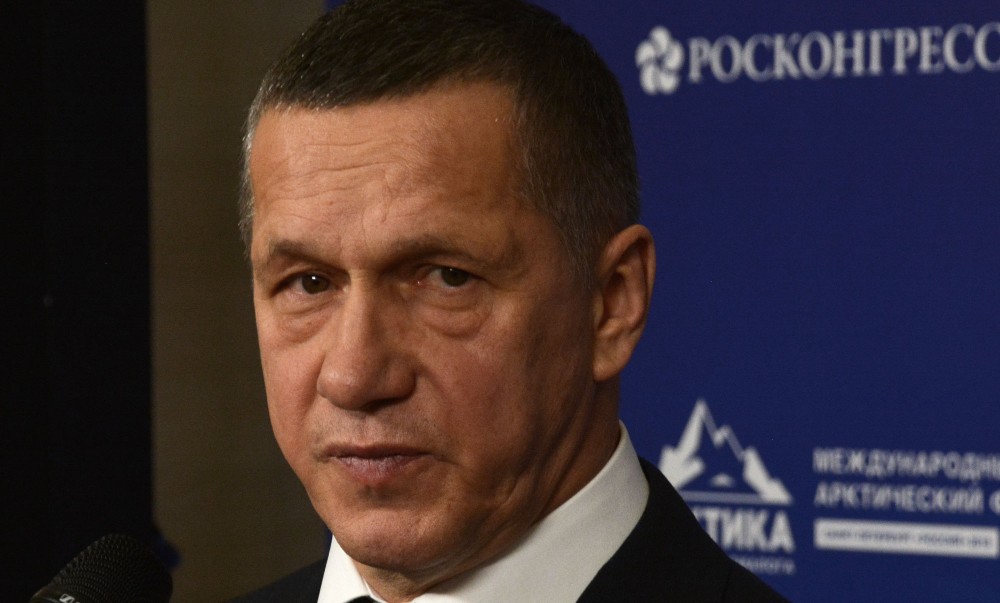
The number of children in Somalia receiving treatment for the most dangerous form of malnutrition surged 300% in the first six months of 2022 as the worst drought in years tightened its grip on the country, Save the Children said today.
In June, doctors at a healthcare facility for children in Baidoa, southwest Somalia, run by Save the Children, treated a record 471 children suffering from severe acute malnutrition with other medical complications - four times more patients than in January.
Doctors said they were witnessing first-hand how a changing climate is fuelling a catastrophic hunger crisis. Dr. Farhiyo Mohamud Abdirahman has treated malnourished children at Save the Children’s stabilisation centre in Baidoa for more than two years and now works overtime regularly to cope with the increase in the number of patients.
"We’re facing a lot of new challenges compared to even two to three months ago. We don’t have enough beds, there are not enough rooms, and staff are working overtime," said Dr. Farhiyo Mohamud Abdirahman. "We are being pushed to our limits."
Four consecutive rainy seasons have failed in the Horn of Africa with forecasts for a fifth poor rainy season later this year, with the crisis compounded by rising food prices due to the war in Ukraine and the economic fallout of the COVID-19 pandemic. At least 18.5 million people in Somalia, Ethiopia and Kenya have been affected by the drought, which began in October 2020 .
With no end in sight of the devastating drought, Somalia is now on the brink of famine, raising fears of a repeat of a 2011 famine which killed 260,000 people, about half of whom were children aged under five.
In the first half of 2022, Dr. Farhiyo Mohamud Abdirahman and her team treated 1,435 children for severe acute malnutrition, about 25% more patients than the whole of 2021. The health centre recently had to install two medical tents in its courtyard to accommodate the surge in demand for malnutrition treatment.
As drought continues to devastate large swathes of the country, the number of children dying from malnutrition is also skyrocketing. The stabilisation centre recorded 18 deaths in June, more than double the number from May and the highest figure at any other point in the past 12 months. Nearly 90% more children died from malnutrition at the centre in the first six months of 2022 than in the same period last year.
Somalia is facing one of the most severe emergencies in the worst global hunger crisis this century with action needed urgently to prevent a repeat of the 2011 catastrophe. However, only [Somalia%20Humanitarian%20Response%20Plan%202022%20|%20Financial%20Tracking%20Service%20(unocha.org)]30% of a UN appeal for US$1.5 billion to combat the crisis in Somalia has been funded.
"We live in a world where we know how to prevent extreme hunger, yet hundreds of thousands of people still die from lack of food. Today, allowing hunger around the world is a political choice.
"For millions of children in Somalia and the Horn of Africa, time is running out. We’ve already seen the deadly consequences this drought is having on children. We cannot wait any longer to act. In some of the worst affected areas in Somalia, our health clinics are seeing four times as many children suffering from severe malnutrition compared to just six months ago and death rates are soaring."
Early international intervention during a severe drought in 2017 averted a repeat of the 2011 catastrophe. Humanitarian agencies are warning that without urgently needed funds now and lasting action to tackle climate change and its impacts, this year’s drought in Somalia could be even more devastating that the famine a decade ago. The last famine to be officially declared globally was in some areas of South Sudan in 2017.
At least 1.5 million children under five are acutely malnourished across Somalia, with more than 385,000 children at risk of dying without immediate care.
"When I first started working here, there were very few cases of severe malnutrition. Now, every day, severely malnourished children come to the clinic. And, they have more complications and more diseases than before," Dr. Farhiyo Mohamud Abdirahman continued.
Malnourished children are more susceptible to infections and other diseases, such as measles, pneumonia and cholera, putting their health at even greater risk.
Casho-, 33, lost two of her children to measles this year and the majority of her livestock have died during the drought. She explained that her family decided to relocate to a displacement camp in Baidoa in hopes of finding life-saving aid. She walked with her seven children for two consecutive days to reach the camp at Baidoa, leaving behind their home and once prosperous farm.
"The drought has affected us badly, especially children who suffered from diseases like measles. We used to rear animals and grow crops, but our animals died, and crops failed. Our children are sick. We are also sick. We are all suffering from hunger, young and old," said Casho.
With the majority of Somalia facing severe drought, displacement and poverty have become widespread throughout the country. Hundreds of thousands of people like Casho have been forced to flee their homes in search of food, clean water and medical care. However, hunger is still a daily reality in displacement camps.
"We did not eat last night or the night before. We have nothing. That is our situation," said Ali-, 15, who arrived at a displacement camp in Baidoa with his family in June. "We beg from the market for some maize or some money, and sometimes we return home with nothing and sleep on an empty stomach. Our farms are dry and we are starving. Our main problem is hunger."
Save the Children is working to help affected communities in Somalia cope with the immediate humanitarian effects of drought. The aid agency is providing emergency water supplies, treating malnourished children, supporting education systems so that children do not miss vital learning while displaced by drought, running health facilities, and providing cash and livelihood support to the most vulnerable.

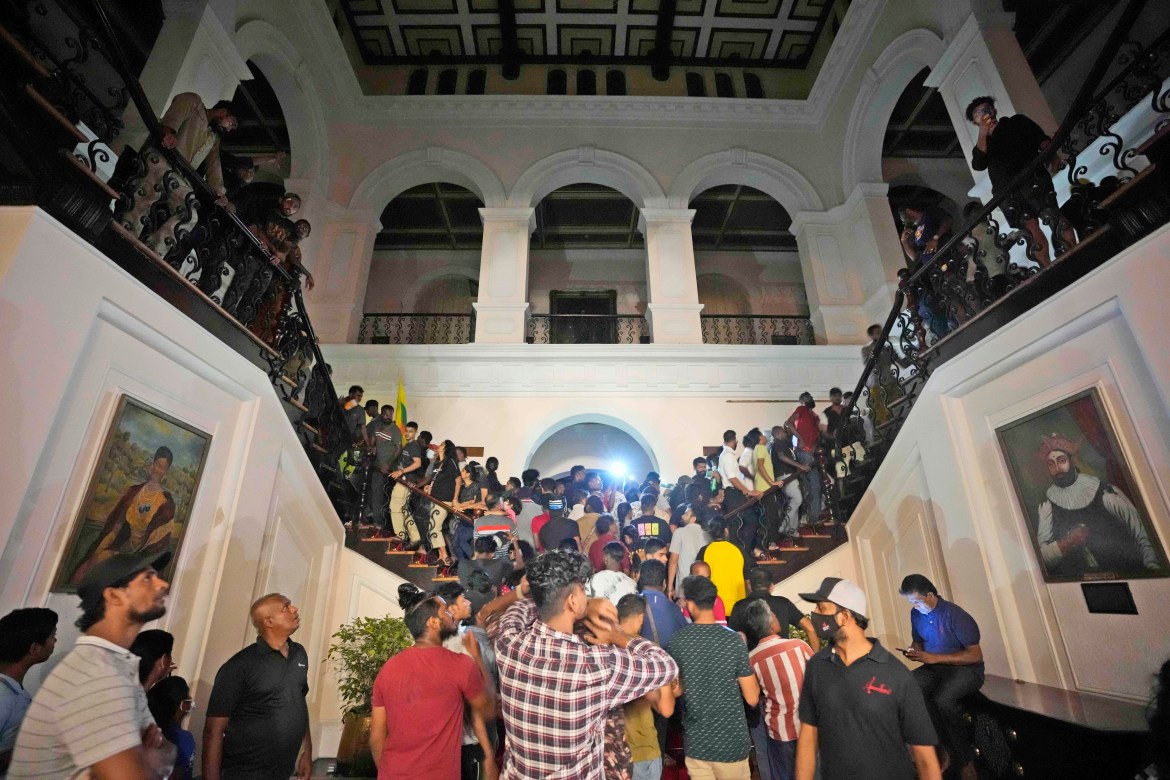
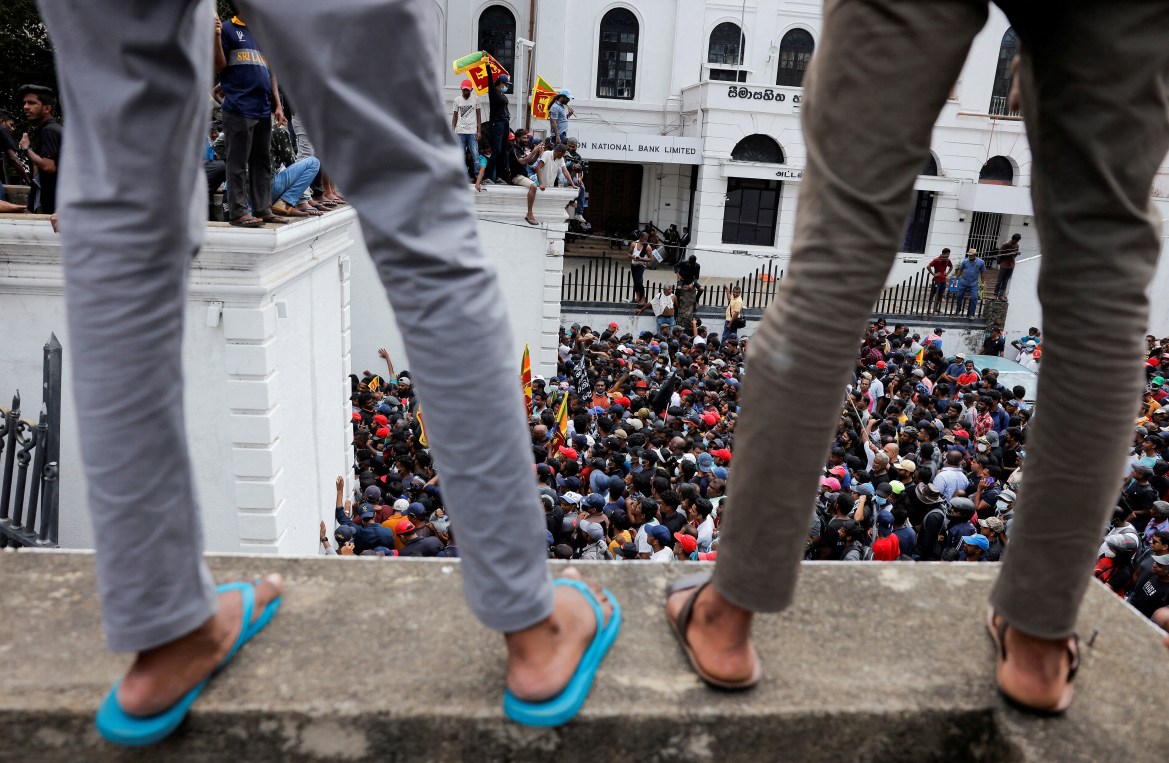

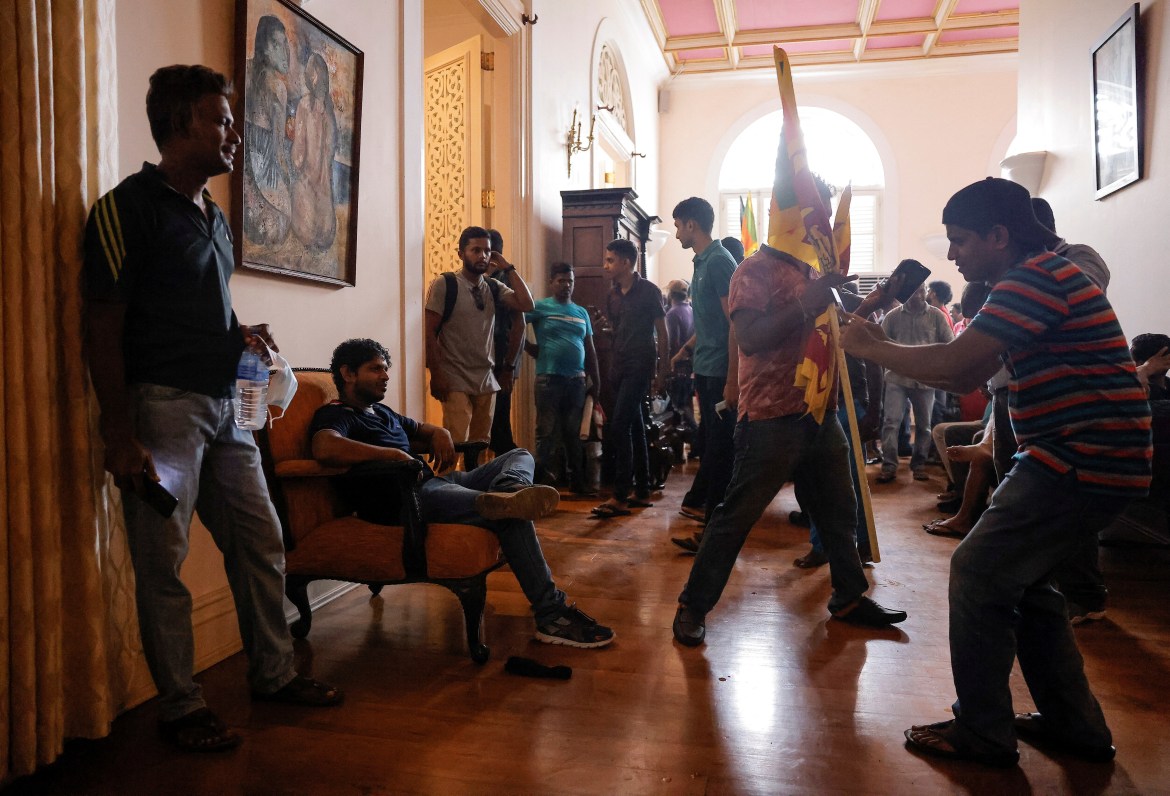
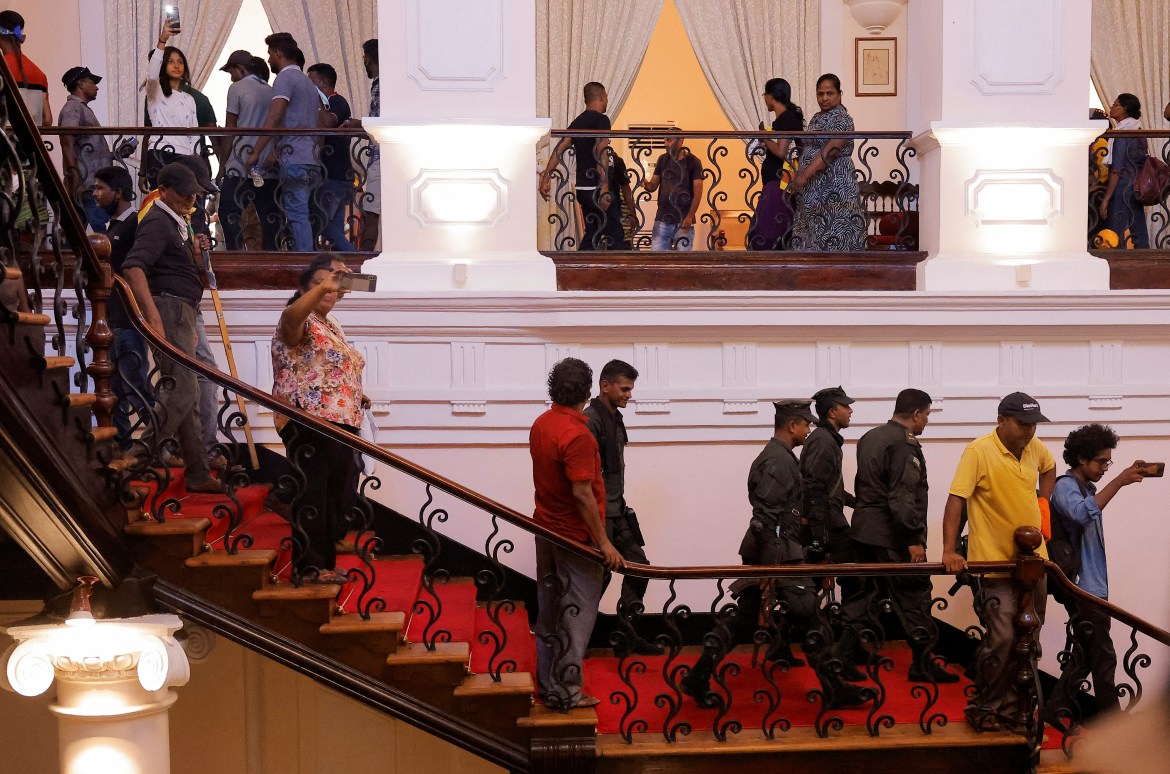
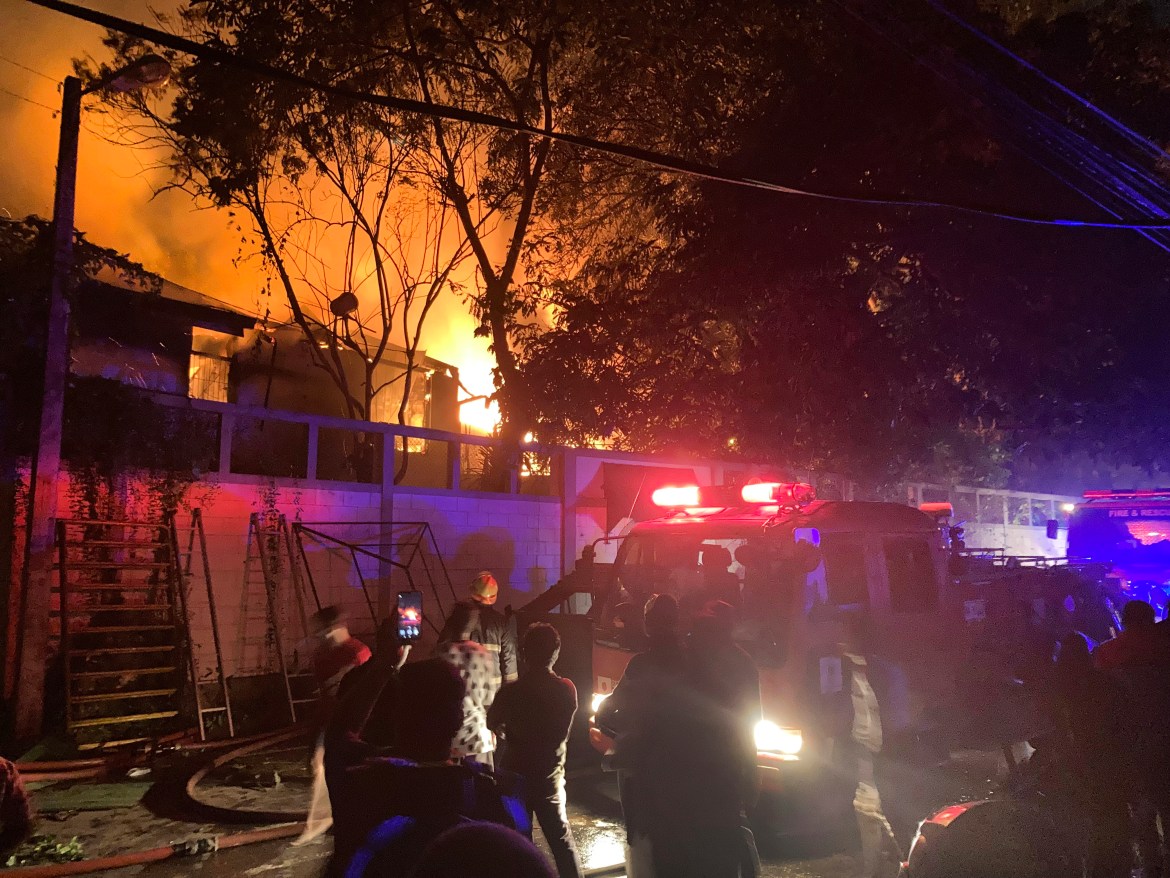
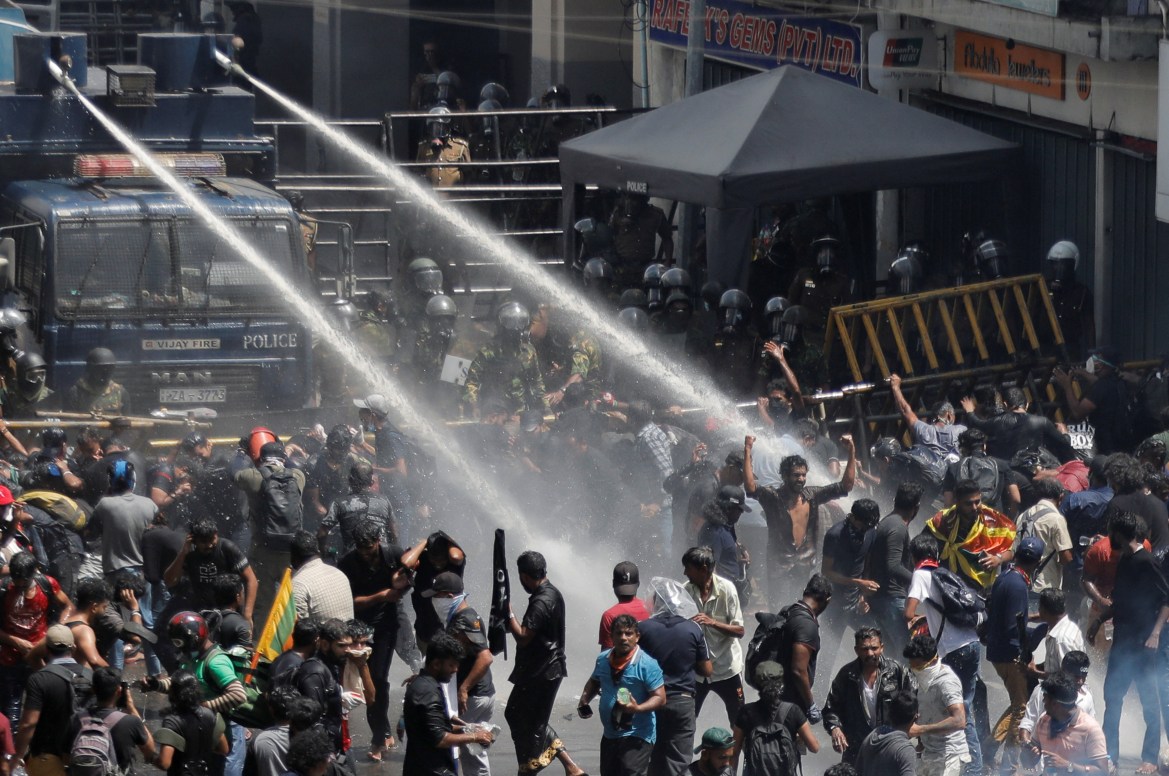

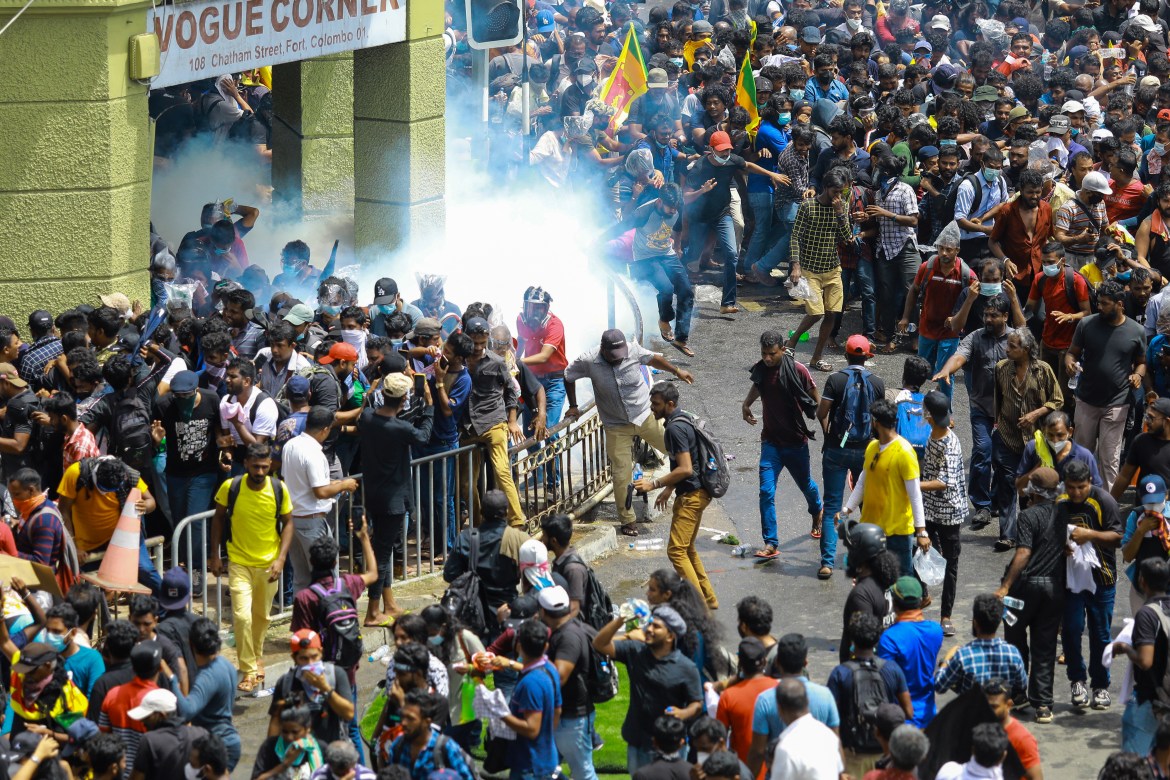
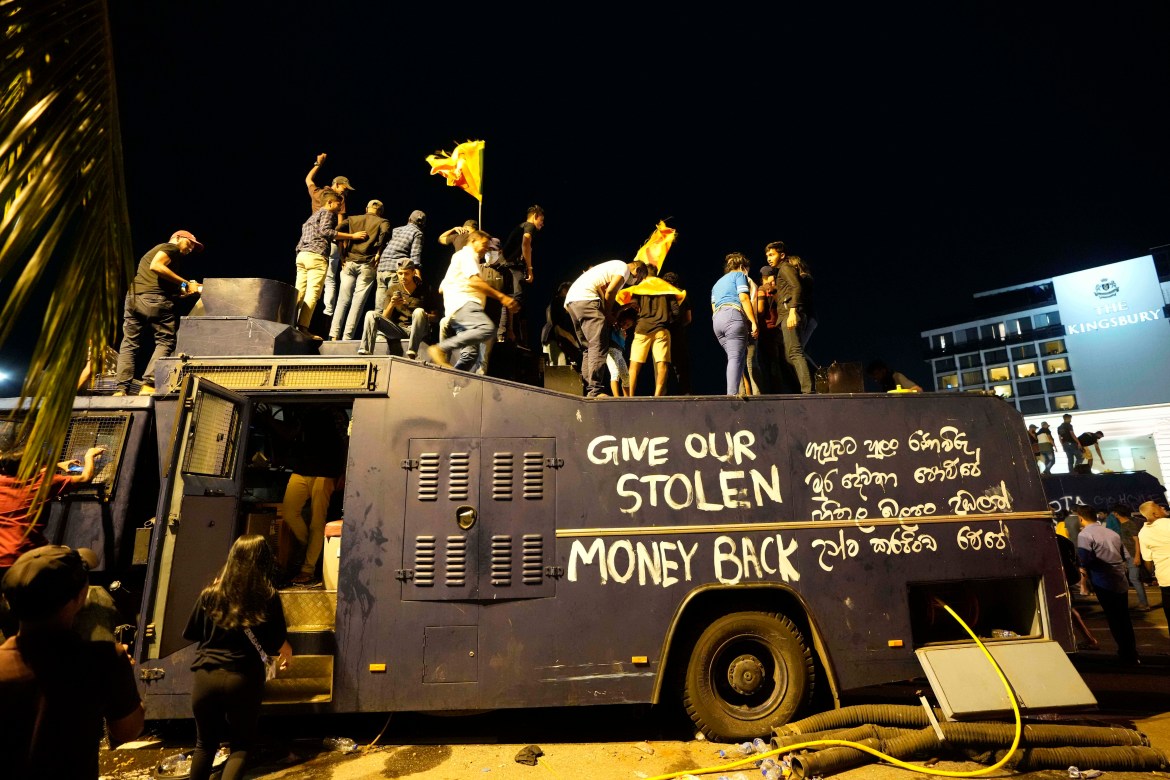




Anti-govt protesters in Sri Lanka claim they find millions of rupees inside President's house
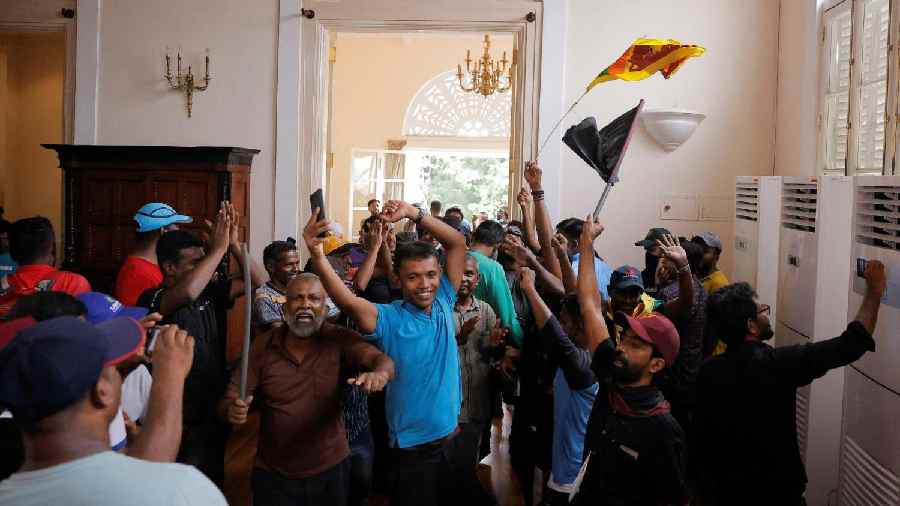
The anti-government protesters in Sri Lanka who stormed embattled President Gotabaya Rajapaksa's official residence have claimed to have recovered millions of rupees inside his mansion, according to a media report on Sunday.
A video is being shared on social media showing the protesters counting the currency notes that were unearthed. The recovered money was said to be handed over to the security units, the Daily Mirror newspaper reported.
Authorities have informed that they will take steps to announce the ground situation after probing the relevant facts, the daily reported.
Hundreds of anti-government protesters on Saturday stormed into Rajapaksa's residence in central Colombo's high-security Fort area after breaking the barricades, as they demanded his resignation over the island nation's worst economic crisis in recent memory. Another group of protesters entered the private residence of Prime Minister Ranil Wickremesinghe and set it on fire.
The President's whereabouts is still not known. His only communication outside since the protesters stormed into the city has been with the Parliament Speaker Mahinda Yapa Abeywardena, who announced late Saturday night that the President would resign on Wednesday.
President Rajapaksa informed the Speaker about this decision to quit after Abeywardena wrote to him seeking his resignation following the all-party meeting of leaders held Saturday evening.
The Speaker would become the acting President in the absence of both the President and the Prime Minister. Later, an election among MPs must happen to elect a new President. Prime Minister Wickremesinghe has also offered to resign.
In May, President Gotabaya Rajapaksa's elder brother and Prime Minister Mahinda Rajapaksa had to quit in the face of massive anti-government protests.
The Rajapaksa brothers, Mahinda and Gotabaya, were hailed by many in Sri Lanka as heroes for winning the civil war against the LTTE but they are now blamed for the country's worst economic crisis.
The expected exit of President Gotabaya Rajapaksa on Wednesday and the resignation of Mahinda Rajapaksa as Prime Minister in May is a dramatic fall from grace for a powerful family that has dominated Sri Lankan politics for more than a decade.
Sri Lanka, a country of 22 million people, is under the grip of an unprecedented economic turmoil, the worst in seven decades, crippled by an acute shortage of foreign exchange that has left it struggling to pay for essential imports of fuel, and other essentials.
The country, with an acute foreign currency crisis that resulted in foreign debt default, had announced in April that it is suspending nearly USD 7 billion foreign debt repayment due for this year out of about USD 25 billion due through 2026.
Sri Lanka's total foreign debt stands at USD 51 billion.

German Berlinale film festival calls for release of award-winning Iranian director
Golden Bear-winning Iranian director Mohammad Rasoulof was arrested after supporting protesters. He was unable to attend the Berlinale in 2020 as his passport had been confiscated.

The two directors were arrested after writing a letter in support of protests over a collapsed building in Abadan
Germany's Berlinale film festival on Saturday expressed its shock at the arrest in Iran of the director Mohammad Rasoulof, who won the festival's top prize in 2020.
Rasoulof was arrested on Friday, along with his colleague Mostafa Al-Ahmad, following a social media post. They were charged with incitement of the people.
"It is shocking that artists are imprisoned for their peaceful opposition to violence," said Mariette Rissenbeek and Carlo Chatrian, who manage the Berlinale.
"We demand that the Iranian authorities immediately release the two directors," they said.
Rasoulof won the Berlinale's Golden Bear award for best film in 2020 for his production "There is No Evil."His film deals with social issues in Iran and was considered a criticism of the theocratic regime.
The director splits his time between Tehran and the German city of Hamburg. Despite being banned from working in the industry by the Iranian government, he has continued to make films.
His passport was confiscated in 2017, after his film "A Man of Integrity" made its premiere at the Cannes film festival in France. This meant that he was unable to leave Iran and travel to Berlin to accept his Golden Bear in 2020.
The social media post that got the two artists into trouble involved a joint letter calling on security forces to "lay down their arms" in response to the mass protests in the southwestern city of Abadan following the collapse of a building on May 23 that killed 43 people.
The protesters have called for those responsible for the collapse to be prosecuted. Police have clamped down on the dissent with tear gas, warning shots and arrests.
Public anger has also been stoked by rising prices, with some people blaming the failure of the regime to make a breakthrough on ending US sanctions by rejoining the 2015 nuclear agreement.
"In the midst of the heartbreaking incident in Abadan's Metropol, [the filmmakers] were involved in inciting unrest and disrupting the psychological security of society," Iranian state-run news agency IRNA said.
A prominent government critic and former minister, Mostafa Tajzadeh, was also arrested on Friday for similar charges.
ab/jcg (dpa, KNA, AFP, Reuters)
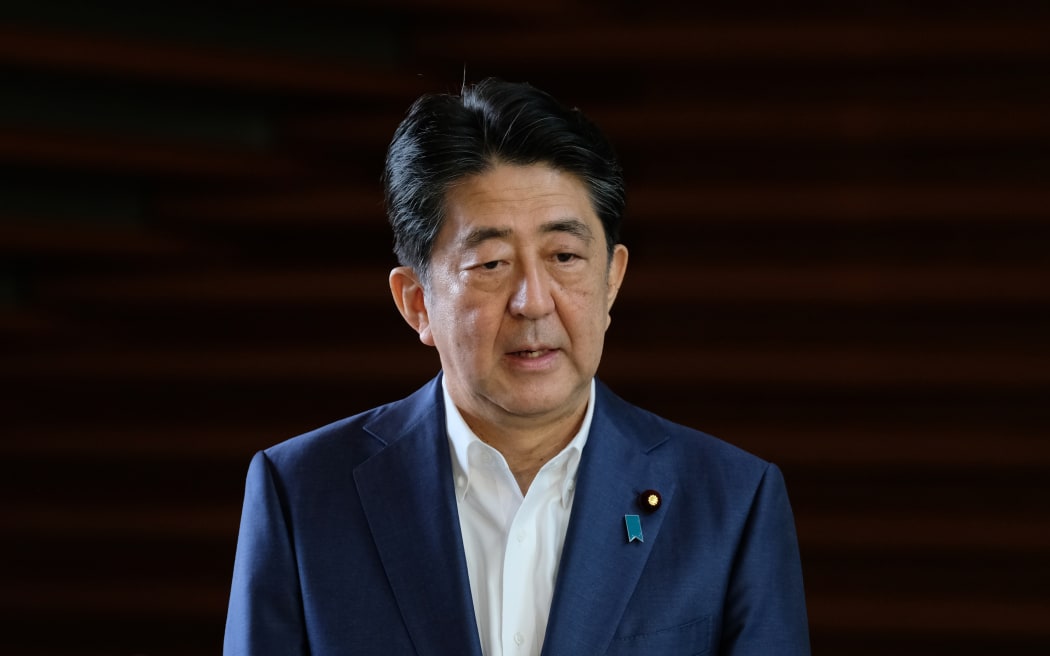

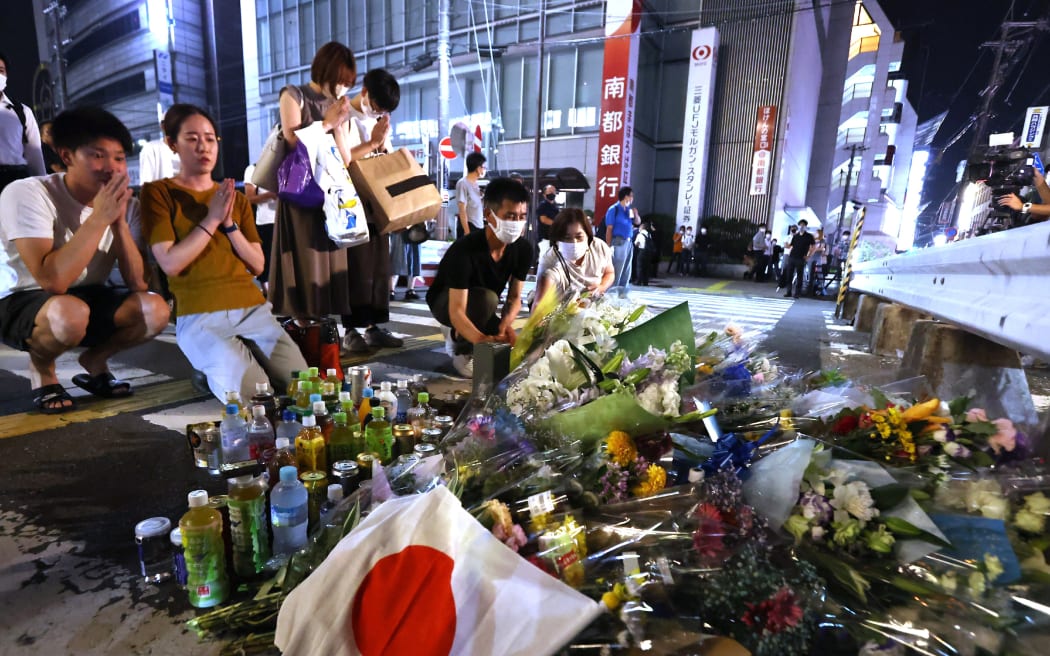
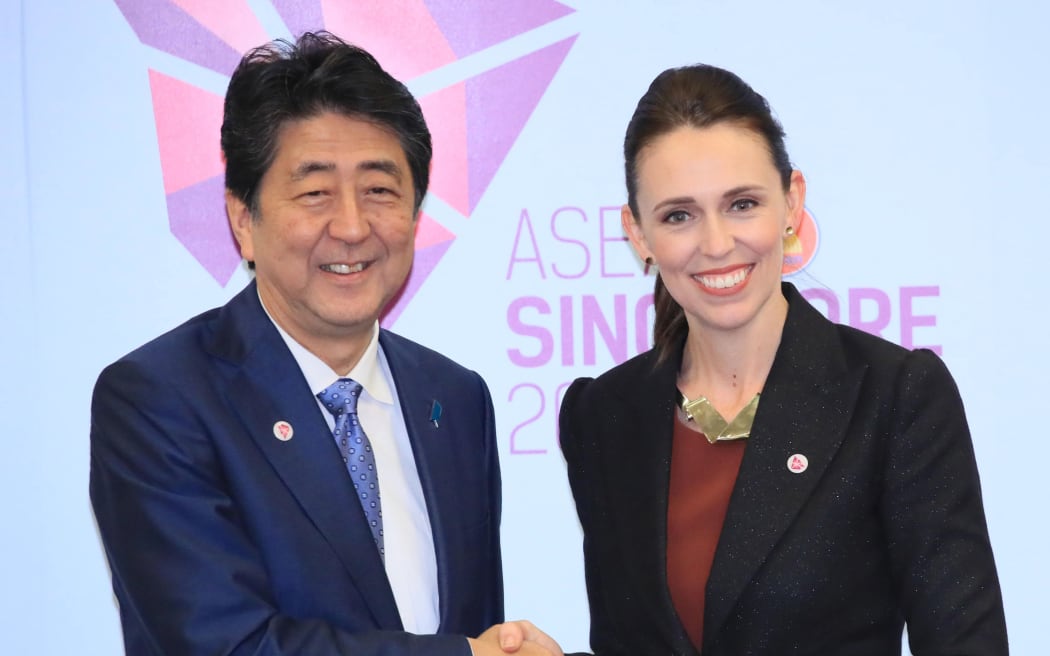
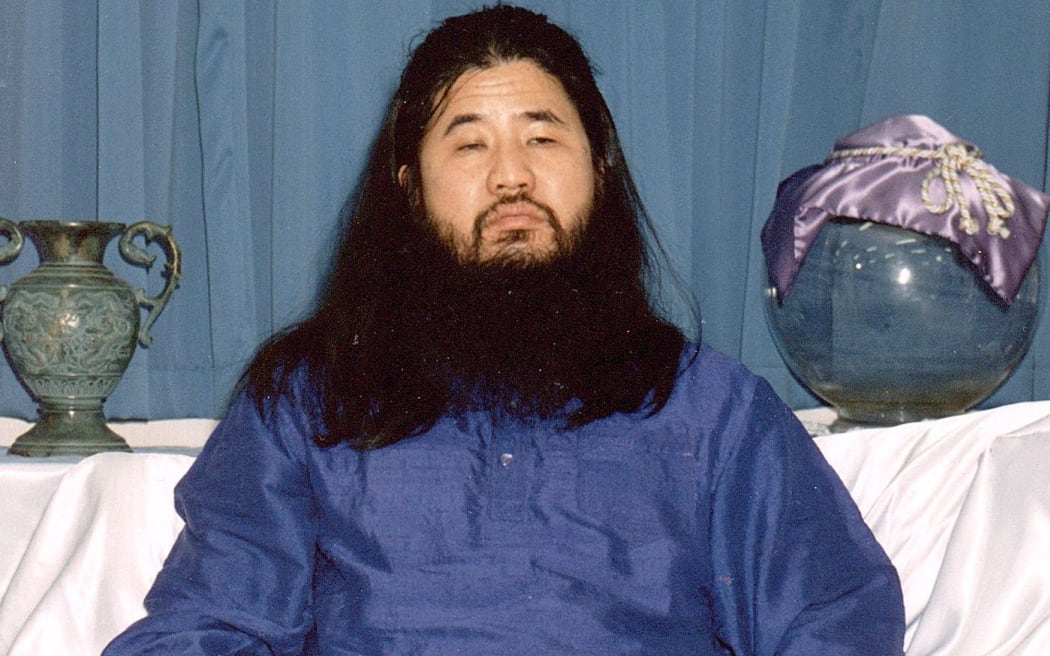


The Aids activists who took on big pharma in South Africa –